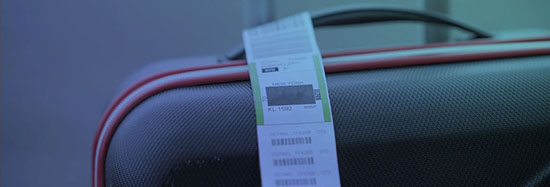23.07.2024 - Public WiFi networks at hotels, cafes and airports are a convenient and often free way to access the internet while avoiding roaming charges. Unfortunately, they are also a popular target for cybercriminals looking to steal personal information such as credit card details. Recently, a person was arrested in Australia for setting up fraudulent networks on planes and in airports.

Public WiFi hotspots are often unencrypted or have only weak security systems in place. Login credentials, credit card information, personal messages or other sensitive information that is transmitted in unencrypted form is relatively easy for hackers to intercept. Attackers can set up deceptive WiFi access points that look like the real thing. They can gain access to your devices and data in this way, intercepting any information you transmit over the internet: for example emails, pictures, credit card details or access data for your company network. Once the attacker has this information, he or she can freely access your systems.
A case from Australia shows how easy it is to fall victim to such attacks. A scammer set up WiFi networks in airports and on planes, convincingly imitating official public networks.
Passengers who tried to log on to these fake networks were redirected to a fake website, where they were asked to enter their email addresses and passwords.
According to the Australian police, this gave the scammer access to a wide range of sensitive information, including access to messages, pictures, videos and credit card information.
The suspected scammer has since been arrested by the police. An airline crew had discovered his fake WiFi network. A search of his baggage uncovered a laptop, mobile phone and a portable wireless access device that was likely used to set up the fake WiFi networks.
How can you protect yourself?
- Check network names: Be careful when choosing a WiFi network to connect to: make sure the network name is in fact correct. Using their mobile phones, scammers can set up hotspot networks and name them anything they like – for example 'Airport free WiFi' or any other name that sounds trustworthy;
- Use encrypted WiFi: Many public WiFi networks are not encrypted. Anyone can read the data you transmit via an unencrypted network. When travelling, make sure that you only use encrypted WiFi and do not read or edit sensitive data when you are using it (e.g. confidential emails, ebanking);
- Virus protection and a firewall: Malware that steals data such as credit card information can be spread via public WiFi networks. Be sure to install virus protection and a firewall on your mobile device. You can find a wide range of free virus protection software and firewalls in the app stores;
- Software updates: Install software updates on your mobile devices as soon as they become available. This also applies to the apps you have installed. If you do not, you run the risk that attackers will be able to exploit security vulnerabilities and steal information;
- VPN: If you can, use a Virtual Private Network (VPN). VPNs encrypt all your data traffic. This means that unauthorised people cannot access it. There are free VPNs available in the app stores;
- Secure data transmission: Check that the URLs of the websites you visit start with "https://" and there is a lock or key symbol in the browser's address line. This means that data is transmitted securely;
- Deactivate automatic WiFi connections: Mobile devices are often set to automatically connect when they are in range of a public WiFi network. Deactivate this function in your device's settings. It is even safer to switch off the WiFi on your mobile devices and only activate it when you need to.
Current statistics
Last week's reports by category:
Last modification 23.07.2024





